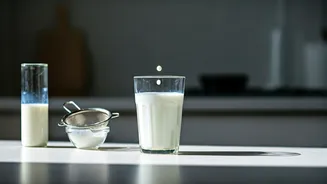There’s good news for mango lovers living with diabetes. In a significant departure from long-held dietary advice for people with type 2 diabetes, two new clinical studies undertaken by Indian researchers
have found that controlled consumption of mangoes may improve blood sugar levels, insulin sensitivity, and other metabolic health indicators.
The studies, led by researchers at Fortis C-DOC Hospital and the National Diabetes, Obesity and Cholesterol Foundation (N-DOC) in New Delhi, examined the impact of three popular Indian mango varieties—Safeda, Langra, and Dasheri—on individuals with type 2 diabetes.
While mangoes are traditionally discouraged in diabetic diets due to their perceived high sugar content, the findings—one of which is published in the Journal of Diabetes & Metabolic Disorders and another is accepted for publication in the European Journal of Clinical Nutrition—offer scientific evidence that moderate mango consumption may not only be safe but also beneficial for people with diabetes when integrated carefully into their diet.
The studies indicate that mangoes are, in fact, beneficial when included as part of a calorie-restricted and supervised diet.
“We demonstrated the benefits of small doses of mangoes in place of refined carbohydrates like bread through two detailed studies—the first of their kind in India,” said Dr Anoop Misra, senior author of the study and chairman, Fortis C-DOC.
However, he added a word of caution. “I must stress, this is not a free pass to eat mangoes indiscriminately. They must be incorporated into calorie-restricted diets under professional supervision and tailored to each patient’s medical profile.”
What does the first study say?
In the first study, accepted in the European Journal of Clinical Nutrition, researchers evaluated 95 participants—45 with type 2 diabetes and 50 non-diabetic individuals—using oral tolerance tests and continuous glucose monitoring (CGM).
Participants were given 250 grams of mango (Safeda, Dasheri, and Langra) or an equivalent-calorie portion of white bread, and their blood sugar responses were measured over two hours. Additionally, a subset wore continuous glucose monitors for three days to assess fluctuations in glucose levels.
The results showed that mango consumption produced either similar or slightly lower blood sugar responses compared to bread in both diabetic and non-diabetic individuals. More importantly, in people with diabetes, the variability of glucose levels over the three days—a factor known to affect long-term health outcomes—was significantly lower following mango consumption. According to the researchers, this indicates that mangoes may offer greater glycemic stability compared to bread, contradicting the common assumption that they are harmful to blood sugar control.
“Mangoes are a much-loved fruit and often maligned for their possible glucose and weight-elevating effects,” said Dr Sugandha Kehar, the first author of both studies. “These studies, painstakingly done by us, show that within prescribed diets, consumption of mangoes is not detrimental to blood glucose and may even be beneficial.”
What did the second study find out?
Building on those initial findings, the second study, published online on August 6 in the Journal of Diabetes & Metabolic Disorders, involved an eight-week randomised controlled trial among 35 adults with type 2 diabetes. The participants were divided into three groups: one consumed 250 grams of Safeda mango daily, another Dasheri mango, and the third white bread, all taken at breakfast. Their glycemic parameters, insulin sensitivity, body measurements, including skinfold thickness, and lipid profiles were closely monitored throughout the trial.
The researchers reported that both mango groups experienced notable reductions in fasting blood sugar and glycosylated haemoglobin (HbA1c), a long-term marker of blood glucose levels. Insulin resistance, measured through HOMA-IR, also improved in both mango-consuming groups compared to the bread group. Alongside improvements in glycemic control, participants who consumed mangoes also lost weight, showed reductions in waist circumference, and had decreased skinfold thickness—indicators of reduced visceral and subcutaneous fat. Levels of high-density lipoprotein (HDL), or “good cholesterol”, also increased significantly among mango consumers, while the bread group did not show such improvements.
Both studies received funding support from the country’s apex medical research organisation, the Indian Council of Medical Research (ICMR), under the union ministry of health and family welfare.
“These results may bring relief to millions of Indians with diabetes who are routinely asked to avoid mangoes,” said Dr Kehar. “With careful dietary planning and medical oversight, we believe mangoes can be reintroduced as a safe and even beneficial option.”
Why is this important for India?
According to the World Health Organization, in India, there are an estimated 7.7 crore people above the age of 18 years suffering from diabetes (type 2), and nearly 2.5 crore are prediabetics (at a higher risk of developing diabetes shortly). Also, more than 50% of people are unaware of their diabetic status, which leads to health complications if not detected and treated early.
Diabetes is a chronic disease that occurs either when the pancreas does not produce enough insulin or when the body cannot effectively use the insulin it produces, WHO explains, while adding that adults with diabetes have a two- to three-fold increased risk of heart attacks and strokes.
Mangoes are deeply embedded in Indian culture and cuisine and are widely consumed during summer. However, these studies suggest that when consumed in moderation and within a carefully designed dietary framework, mangoes can replace more harmful carbohydrate sources such as white bread—and possibly improve metabolic outcomes in the process.















